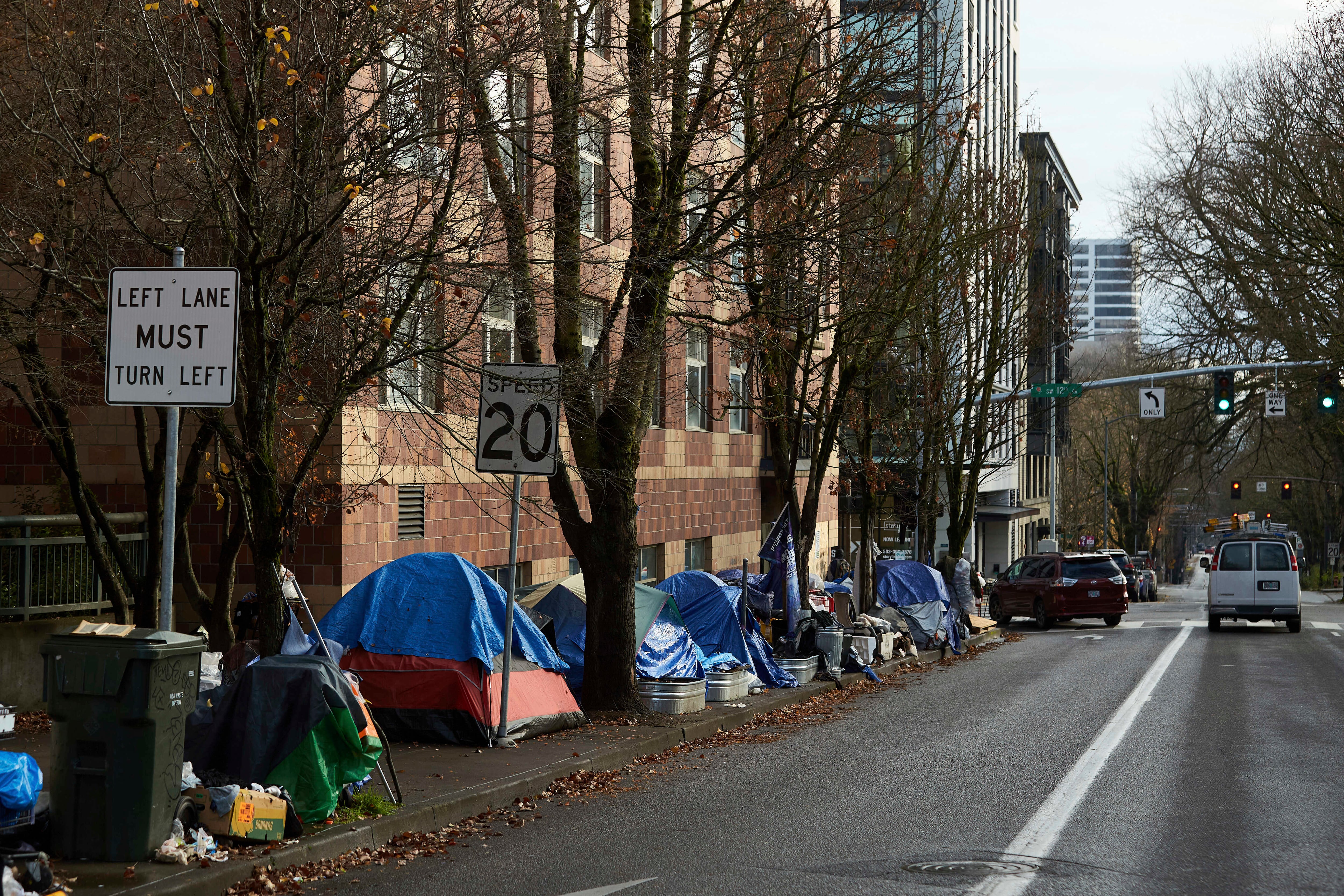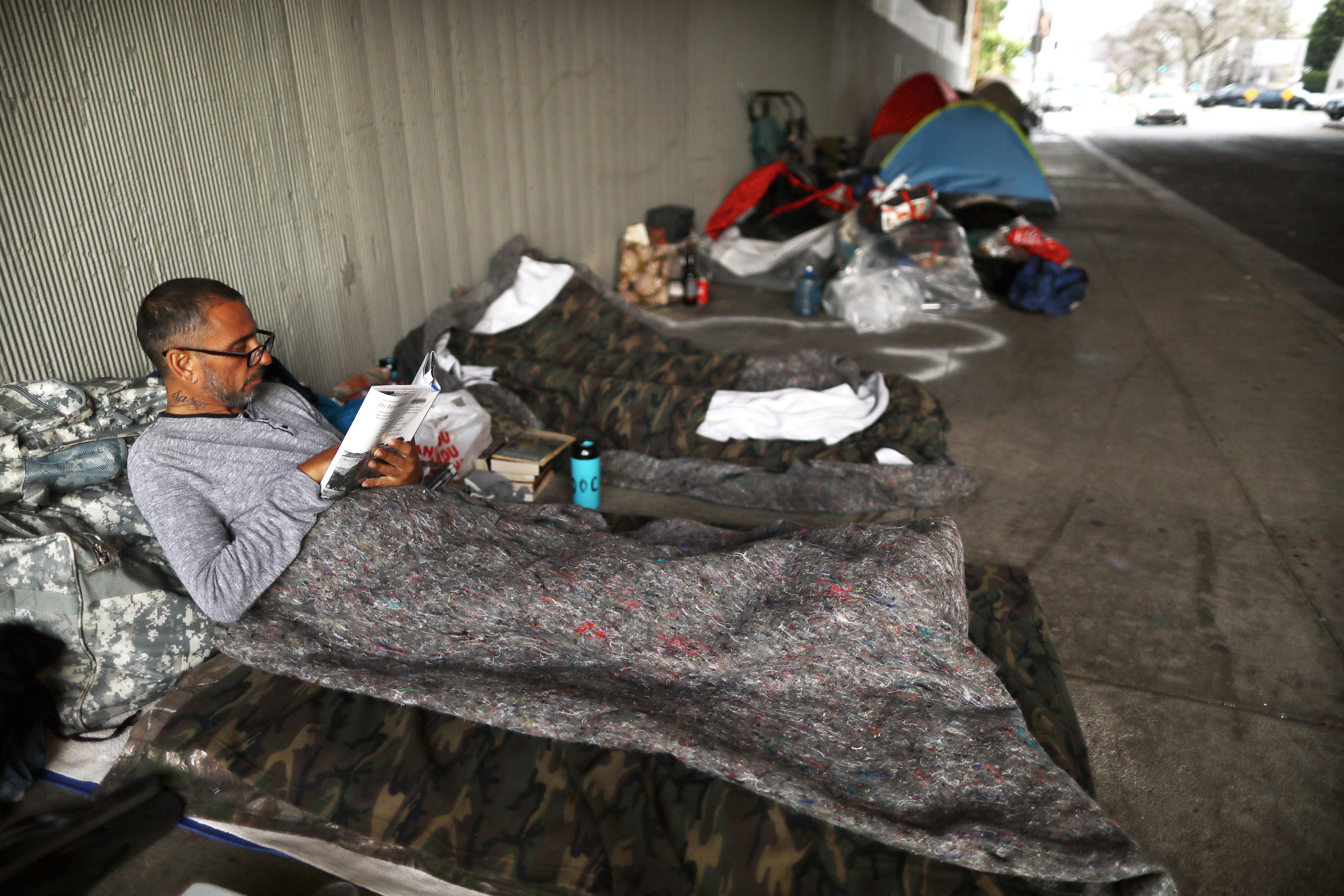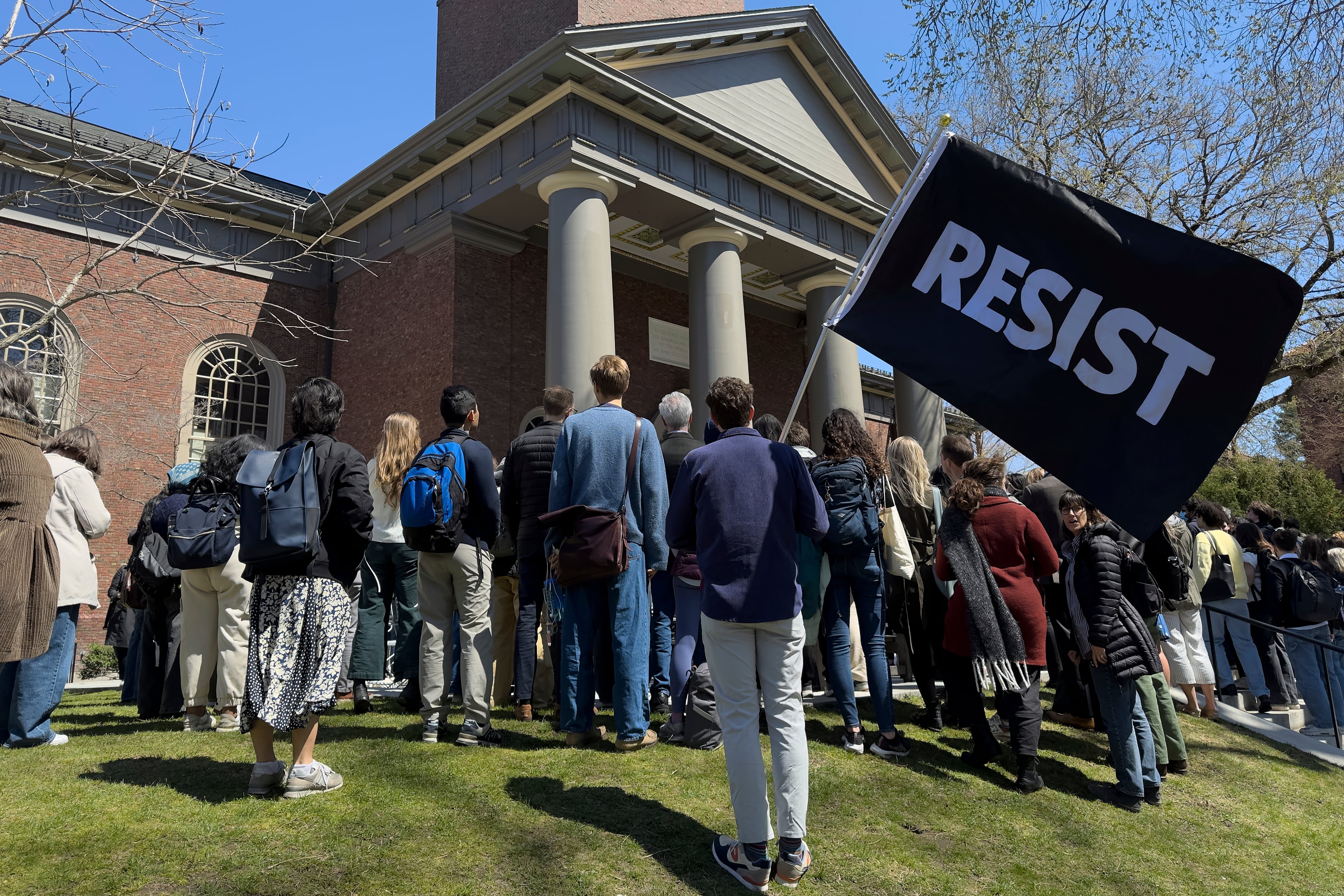Veterans advocates are scrambling to fix funding and programming shortfalls caused by the expiration of pandemic assistance for homeless veterans earlier this month, a problem they believe could be avoided with a quick vote by Congress.
But plans to extend that extra relief are still stalled in the House and Senate amid the ongoing debt limit fight and other federal budget talks. With no clear end in sight, the delay has the potential to undo some of the progress made in recent years in reducing homelessness among veterans.
“Right now we’re only getting about 70% of what it actually costs to provide our services to veterans, so we’ve already had to start cutting back,” said Akilah Templeton, chief executive officer of Veterans Village of San Diego, which provides a range of housing support programs and employment training efforts.
“Before the pandemic support, it was already a patchwork quilt of funding. And now we’re returning to that, and it’s scary.”
RELATED

Templeton and more than 850 other staffers from non-profits across the country were in Washington this week for the annual National Coalition for Homeless Veterans conference. The loss of the pandemic money was a major point of concern for most of the attendees, given the impact they’re already seeing.
“Some of these groups are seeing a drop of $60,000 or more a month in revenue,” said Kathryn Monet, chief executive officer of NCHV. “And so, they’re left trying to figure out, ‘Do I cut social workers? Do I lose out on security deposits?’ They are really hard choices.”
When the national emergency related to the coronavirus pandemic officially ended on May 11, so did a host of federal emergency authorities designed to ease problems created or exacerbated by local quarantine efforts and their lingering economic impacts.
The list included several services targeted specifically at veterans experiencing homelessness or at risk of losing stable shelter: free rides to Veterans Affairs clinics, access to telehealth medical services and increased financial assistance for rent costs.
Veterans Affairs officials had lobbied alongside advocates to extend those protections beyond the May 11 date, but to no avail. Overnight, daily support stipends dropped by more than half in some regions, leaving non-profits scrambling to find new money or new housing options to keep veterans sheltered.
Democratic and Republican lawmakers have said they are still working on the issue, but House rules regarding budgeting offsets have complicated discussions so far — even though an extension is estimated to cost less than $10 million a year. Supporters are hopeful that once the debt limit fight is settled and fiscal 2024 budget work resumes, the issue can be revived.
But for now, they’re left with less money next month to deal with the same problems they faced last month.
The Department of Housing and Urban Development late last year announced that the number of veterans experiencing homelessness sank more than 11% from the start of 2020 to early 2022, a significant decrease after several years of limited progress. Advocates attributed that success in part to expanded focus and funding during the early days of the pandemic in America.
But the positive HUD report still estimates there are about 33,000 veterans without stable shelter on any given night. Housing experts worry that without adequate resources, that number could head higher this year.
“We saw during COVID that an influx of resources can dramatically change the way things are done, but now those resources are going away,” Donald Whitehead Jr., executive director of the National Coalition for the Homeless, told the conference crowd on Wednesday. “We have to keep making the case for why we need them again.”
Conference organizers urged attendees to lobby lawmakers on the issue while in town and once they return home. But for Templeton, that work has to take place at the same time her organization makes cuts to keep operations running as much as possible.
“We’re buckling down, trying to figure it out,” she said. “But with any cuts, the program suffers. And you don’t want that to lead to poor outcomes in the community.”
Leo covers Congress, Veterans Affairs and the White House for Military Times. He has covered Washington, D.C. since 2004, focusing on military personnel and veterans policies. His work has earned numerous honors, including a 2009 Polk award, a 2010 National Headliner Award, the IAVA Leadership in Journalism award and the VFW News Media award.




